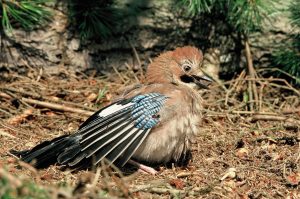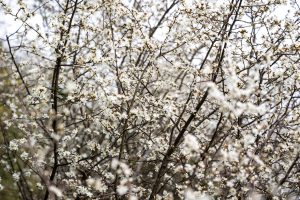Live Mealworm Shortage & Alternative Foods
Well, it couldn’t have come at a worse time of year, but the fact is that our live mealworms supplier – who’s the only commercial breeder in the UK – is currently unable to supply any stock, following a major problem in their breeding facility. We don’t yet know when things will get back to normal and when we can again supply our customers with live mealworms, but it’s likely to be for at least two to three weeks.
So, what we now all need to focus on is alternative foods which can be put out for adult birds to feed to their young at this crucial time of year.
The moisture, along with high levels of protein, is the crucial content in live mealworms, which makes them so suitable for birds who can’t feed themselves. The reason being that unlike an adult bird which can drink from a bird bath or natural source, a bird which is being fed by its parents is solely dependent on the moisture content in the food to keep it hydrated - insufficient hydration threatens the life of the young bird. Of course, natural invertebrates have this moisture content, but, and as we’ve often written about, natural invertebrates numbers are a fraction of what they previously were in many parts of the country.
So these are the best foods to put out in the coming weeks whilst live mealworms are not available.
Although not quite as high in protein as live mealworms, dried mealworms are still pretty good and certainly the next best thing. Of course being dried means all the fluid content has been removed, so before putting them out for birds they will need to be soaked in clean water. This process only takes about 30 minutes, and once sufficient water has been absorbed they’re ready to put out
Most fruit is naturally high in water content, though not all types of fruit are suitable for UK birds – citrus fruits, for example, aren’t suitable. Apples and pears are ideal, and all you need to do is cut the fruit in half and place it on the lawn – with blackbirds especially benefiting. Normally we’d be recommending fruit be put out in the autumn and winter months, but in the circumstances, it’s good to do so now
This is obviously also a fruit – sultanas start life as seedless white grapes – but, being dried, they also need re-hydrating. So soak them for an hour or so before putting them out in your garden, with blackbirds, starlings and robins all readily taking them
In our Vine House Farm garden, we are finding our Super Suet Fat Balls and Suet Pellets are also being taken back to nests. Made with a high percentage of fat, they are an ideal energy boost during the breeding season, although they will not have the same moisture content as those listed above.
All the other types of usual food, such as Sunflower Hearts, can still be fed at this time of year, but ideally not on their own because their moisture content is negligible.
We’ll keep you posted on when live mealworms will be back in stock, there may be stock available again at the start of July.
So, what we now all need to focus on is alternative foods which can be put out for adult birds to feed to their young at this crucial time of year.
The moisture, along with high levels of protein, is the crucial content in live mealworms, which makes them so suitable for birds who can’t feed themselves. The reason being that unlike an adult bird which can drink from a bird bath or natural source, a bird which is being fed by its parents is solely dependent on the moisture content in the food to keep it hydrated - insufficient hydration threatens the life of the young bird. Of course, natural invertebrates have this moisture content, but, and as we’ve often written about, natural invertebrates numbers are a fraction of what they previously were in many parts of the country.
So these are the best foods to put out in the coming weeks whilst live mealworms are not available.
Best Foods to Substitute for Live Mealworms
1. Soaked dried mealworms
Although not quite as high in protein as live mealworms, dried mealworms are still pretty good and certainly the next best thing. Of course being dried means all the fluid content has been removed, so before putting them out for birds they will need to be soaked in clean water. This process only takes about 30 minutes, and once sufficient water has been absorbed they’re ready to put out
2. Fruit
Most fruit is naturally high in water content, though not all types of fruit are suitable for UK birds – citrus fruits, for example, aren’t suitable. Apples and pears are ideal, and all you need to do is cut the fruit in half and place it on the lawn – with blackbirds especially benefiting. Normally we’d be recommending fruit be put out in the autumn and winter months, but in the circumstances, it’s good to do so now
3. Sultanas
This is obviously also a fruit – sultanas start life as seedless white grapes – but, being dried, they also need re-hydrating. So soak them for an hour or so before putting them out in your garden, with blackbirds, starlings and robins all readily taking them
4. Suet
In our Vine House Farm garden, we are finding our Super Suet Fat Balls and Suet Pellets are also being taken back to nests. Made with a high percentage of fat, they are an ideal energy boost during the breeding season, although they will not have the same moisture content as those listed above.
All the other types of usual food, such as Sunflower Hearts, can still be fed at this time of year, but ideally not on their own because their moisture content is negligible.
We’ll keep you posted on when live mealworms will be back in stock, there may be stock available again at the start of July.


